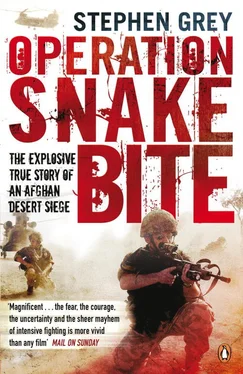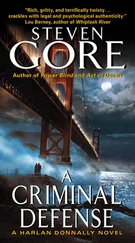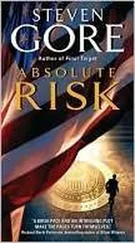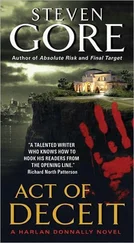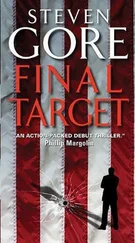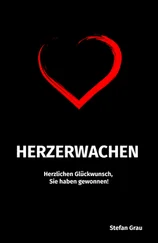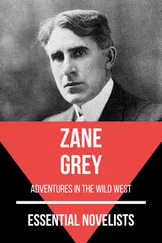Roshan Tower, headquarters of 1 Fury and Alpha Company, 06.45
Sergeant First Class Ronald Strickland was walking down the hilltop trench line where 200 paratroopers were sprawled out. His men were smoked. After hours of humping their gear from the landing zone, of assaulting this hill in darkness and of setting up their perimeter defences, most had barely slept an hour. Strickland hadn’t slept at all. But it was light now and he was kicking them all awake.
For the last half hour Strickland, a thirty-five-year-old from Pembroke, North Carolina, had been standing on the ridgeline and watching the tracer down the valley where Charlie Company was in contact. As the light came up, he knew their turn would come soon.
‘Hey, man, we better back it up, you know, because we might start getting shot,’ he told a fellow sleepwalker.
They got a warning. An EW (Electronic Warfare) sergeant emerged from the command post with a radio intercept. ‘We’re gonna get mortared. Better spread the word,’ he said. Strickland was doing just that with his feet. Within two minutes the rounds started coming in.
The Taliban had opened up not with mortars but with a Dushka, a nickname (meaning ‘sweetie’ in Russian) for the DShK 1938 machine gun used by the Red Army in the Second World War and in the decades after. Like the American and British .50 cals (which entered service just after the First World War and have changed little), it fired half-inch calibre rounds. They were accurate, dinging on the metal of the red-and-white tower and smashing into the walls of the concrete hut underneath.
The men started putting their gear on. Villagers could be seen fleeing along the road beneath the cliff. A full-scale attack was on.
The fire was coming from multiple directions: from the Dushkas straight across the wadi but also now from the green zone just below the tower. ‘The Taliban were trying to manoeuvre on us. They wanted to take the tower back,’ recalled Captain John Pelikan, thirty-two, the Alpha Company commander.
Anyone with a military mind had always known the hill around the Roshan Tower was the key to controlling this town. In the 1983 Soviet attack on Musa Qala, the Mujahidin had kept hold of it and kept the Red Army at bay for seven days. The trenches were still there. And still just as useful. The surprise was the Taliban had not defended it the previous night. But holding a high feature was always a double-edged sword. You could aim your guns from here at everywhere. But everyone in the valley had clear sight of you. The mobile phone mast was a perfect target marker.
Strickland was organizing his men. The biggest threat he knew by now was from the south, where a steep road snaked up the hill from a village through which fighters were already sneaking up. Grabbing a team with a 240 machine gun, Strickland moved down the old trench lines. In some places they were dug deep, in other places only shallow scrapes were left. But the worst thing was a little dip between the two high points on the summit. The Dushka gunners were watching the gap. You just took a deep breath, shouted ‘OK, ready?… Go,’ and had to run across with the rounds cracking by.
Reaching the far position, overlooking the village, he found a team leader crouching for cover. He had just popped his head up… and dived promptly back down.
‘Where’s it coming from?’ said Strickland. The soldier leaned back and pointed over his shoulder. ‘From right down here somewhere, right at these compounds.
Strickland crawled up to the edge and looked over. Straightaway he saw a gunman running from a building to a tree and opening fire. A narrow tree wasn’t much cover. ‘Is he retarded?’ thought Strickland as he shot him, knocking him on his backside. The man kept trying to get up. So Strickland shot him five more times. Then another fighter came out and stood behind another small tree. Strickland shot him too, and the fighter fell.
Following Strickland’s lead, more paratroopers opened up. They pointed their weapons almost vertically down the cliff. More fighters streamed forward, and soon Strickland was bowling grenades straight down the cliff-face. ‘It was like attacking a castle,’ remembered their commander, Colonel Mennes, ‘and the image I had in my head was our guys are pouring hot oil down the castle walls.’
2nd Platoon of Alpha Company was supposed to be clearing compounds that morning. If 1 Fury had landed at the right landing zone, they would have been down in the green zone already. Instead they were under fire, feeling pumped up, but also sick. They were tired and cold and dehydrated after the long walk with heavy kit and just the snatch of sleep. As they moved out, some of them vomited.
‘We were in good spirits,’ said Sergeant Tyler Clas later, when I met him back at Fort Bragg. ‘It wasn’t sick like I am now, where you just feel like crap. You were just completely exhausted and done.’
As the attack started on Roshan, Pelikan had gone up to Mennes and pressed for action. ‘Hey, sir, we need to manoeuvre. Let’s get them off our backs.’ Mennes agreed and Pelikan went down and ordered: ‘Hey, 2nd Platoon, you’re gonna go counter-attack.’
Heading 2nd Platoon was a young first lieutenant named Joe McGovern, on his first combat tour. At his side, though, was a twenty-eight-year-old platoon sergeant named James Brasher with ten years of army experience, including plenty of combat. Brasher, from Albuquerque, New Mexico, was a hard man who led from the front and was followed.
As Strickland’s 3rd Platoon fired downhill from the trenches, 2nd Platoon came down round the side of the hill. The squads started clearing the compounds by kicking down doors or blowing their way in.
The Taliban had not yet realized they were coming. Two of them just came round a corner. They were 6 feet away. Brasher raised his M4 and shot the first one, but he didn’t kill him, and then his gun jammed. He was going to rugby tackle him when Clas, who led a squad, came over his shoulder and shot him dead. The other fighter ran off – and they threw a couple of grenades after him.
A bloody and close-quarter fight continued. When the platoon got pinned down behind a wall, Brasher led a squad to flank their assailants. Smashing through a wall that stood in their way, they ran straight into a gunman with a PKM light machine gun. The squad opened fire, and the man dropped his weapon and rolled into a ditch. But he wasn’t dead, and he reached out and dragged his gun away.
The squad ran forward, lobbing grenades round a corner. As they ran through the smoke, there were two guys ‘just chilling right there’ about 10 feet away, recalled Brasher. He and another soldier named Jasen Pruitt shot them dead. Brasher sent Sergeants Michael Verton and Stephen McBride to push forward. They shot one more gunman, but, as they turned another corner, two RPGs struck a wall by them. McBride was deafened.
Brasher called them back. He went forward. Then he noticed an Apache helicopter that was ploughing up a tree line with its 30 mm cannon. The splashes of dirt seemed to be heading Brasher’s way, exploding whole trees to his side. He thought (wrongly) it was a Dutch Apache and started cursing into his radio: ‘Hey, tell that motherfucker to cease fire! Tell that motherfucker to cease fire!’ He threw out a smoke canister and tried to walk back slowly so the Apache would not think he was running away. But he felt the rounds creeping in on him.
Six months later, as he recalled the scene, Brasher was still angry. ‘Eventually, that wooden-shoe-wearing asshole got it through his head what he was doing… And he went off to go kill some more friendlies!’
Brasher was determined to press on, but this route seemed like the road of death. He turned the squad round again, and this time found a new alley – leading straight up to the enemy’s main compound. As they crept up, Brasher picked up another soldier’s grenade launcher and fired several rounds. And he threw a hand grenade through a window.
Читать дальше
